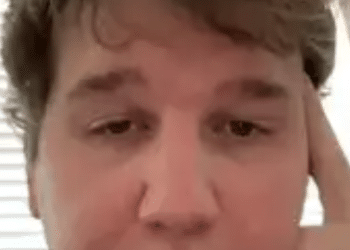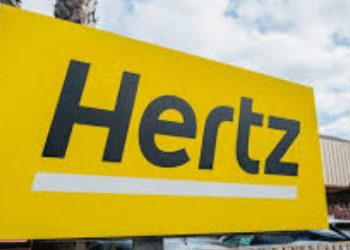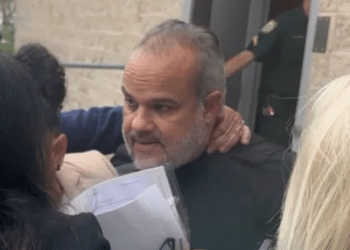A Hezbollah official has told Newsweek that the group was prepared to respond to any Israeli operation conducted in retaliation for a deadly strike in an Israel-occupied town that has been blamed on the Lebanese movement.
“With all certainty, any attack will be met with a response,” the Hezbollah spokesperson said. “No doubt about that.”
The remarks came just as local media reported an explosion at the Hezbollah Shura Council building in southern Beirut. The Israel Defense Forces (IDF) later issued a statement claiming “a targeted strike in Beirut, on the commander responsible for the murder of the children in Majdal Shams and the killing of numerous additional Israeli civilians.”
Newsweek reached out to the IDF for comment.
Israeli Prime Minister Benjamin Netanyahu had vowed a day earlier to pursue “a severe response” at the site of an apparent rocket attack on Saturday that Israeli officials said killed 12 children and teenagers at a soccer pitch in Majdal Shams, a majority-Druze village in the Golan Heights. The Golan Heights were seized during the Arab-Israeli war of 1967 but remain internationally recognized as part of Syria and now, once again, are on the frontlines of a potential major regional escalation.
Hezbollah denied its role in the attack on Majdal Shams, but both Israeli and United States officials have affirmed the group’s responsibility.
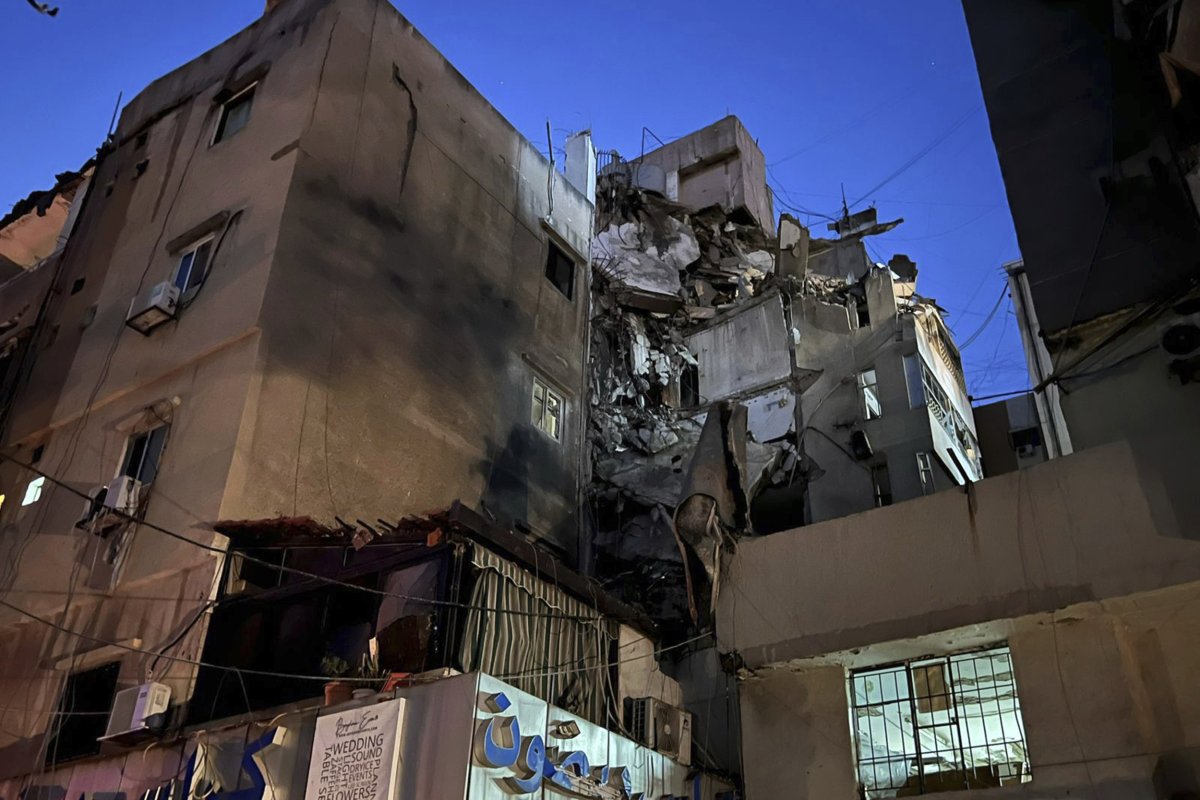
A general view shows a damaged building that was hit by an Israeli airstrike in the southern suburbs of Beirut, Lebanon, Tuesday, July 30.
Hussein Malla/AP
The strike is considered to be the deadliest against civilians since the attack led by the Palestinian militant group Hamas against Israel last October sparked the ongoing war in the Gaza Strip along with a campaign by Iran-aligned Axis of Resistance factions, including Hezbollah, against Israel. The Israel-Lebanon front has proven especially volatile in recent months, marking the worst cross-border violence since the Israel-Lebanon war of 2006.
Netanyahu and other top Israeli officials have openly considered launching a new offensive into Lebanon to push Hezbollah north of the border region, drawing concern from the U.S. and warnings from Iran. The latest tensions have also prompted calls from the U.S. and a number of European nations for their citizens to leave Lebanon in anticipation of a potential crisis.
Speaking to reporters on Tuesday, U.S. Defense Secretary Lloyd Austin said that he did not believe a war between Israel and Lebanon was “inevitable,” but that U.S. officials “remain concerned about the potential of this escalating into a full-blown fight.”
“As to whether or not Israel can manage a war in Gaza and a fight in Lebanon at the same time, Israel will do what it needs to defend itself, and it’s demonstrated that time and again,” Austin said. “We’ve committed to helping Israel defend itself for whatever it takes, and certainly that’s not a scenario that we’d like to see occur. We’d like to see things resolve in a diplomatic fashion going forward.”
Prior to the Israeli strike in southern Beirut, both the IDF and Hezbollah claimed new cross-border attacks on Tuesday, with Israeli officials saying another civilian was killed after rockets fired from southern Lebanon hit the northern Israeli kibbutz of HaGoshrim.
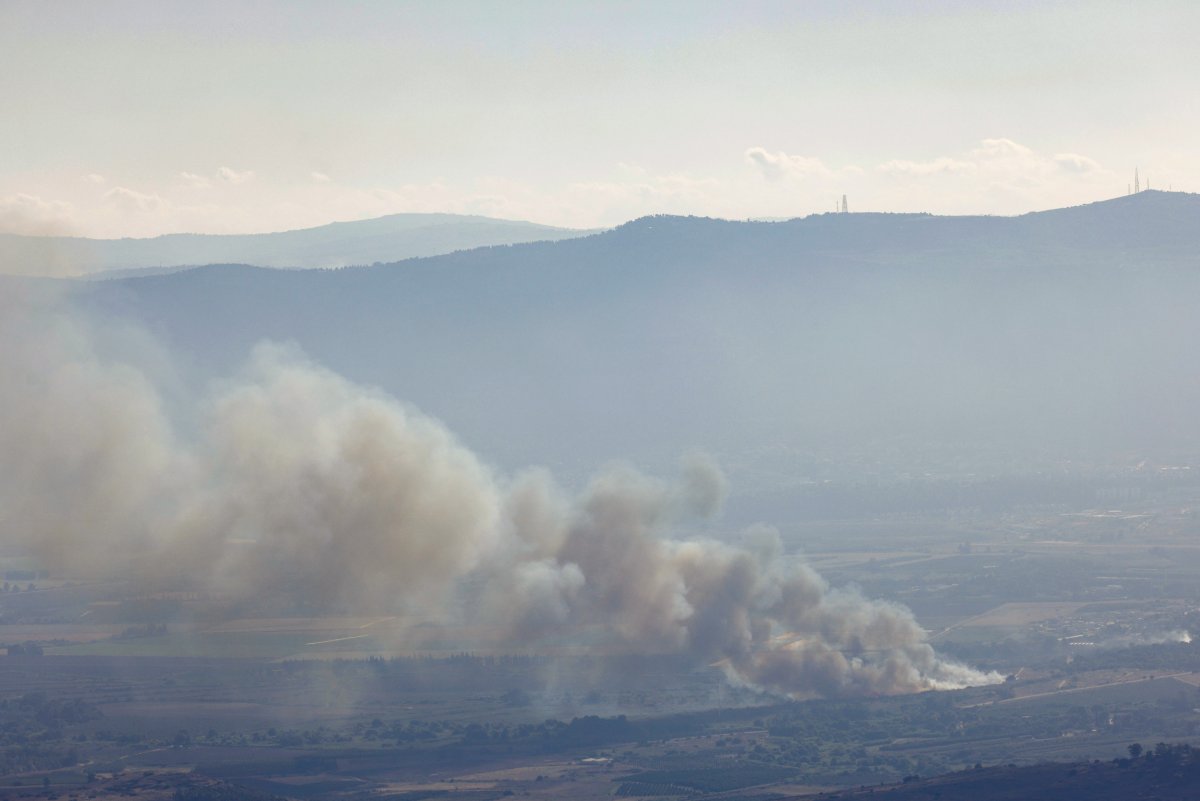
Smoke billows after a hit from a rocket fired from southern Lebanon over the Upper Galilee region in northern Israel on July 30, 2024, amid ongoing cross-border clashes between Israeli troops and Hezbollah fighters.
AFP/Getty Images/JALAA MAREY
Hezbollah claimed to have targeted IDF barracks at Beit Hillel, located near HaGoshrim, with Katyusha rockets, as well at least five other operations on Tuesday, all said to have been conducted “in support of our steadfast Palestinian people in the Gaza Strip and in support of their valiant and honorable resistance” and in response to Israeli attacks in Lebanon.
That same day, the IDF said it had “struck approximately 10 Hezbollah terror targets in seven different areas in southern Lebanon” and had “eliminated a Hezbollah terrorist in the area of Bayt Lif, and struck a Hezbollah weapons storage facility, terror infrastructure sites, military structures, and a launcher in southern Lebanon.”
The IDF also said it had faced dozens of projectiles and drones fired from southern Lebanon toward various sites at northern Israel throughout the day and had struck the sources of fire using jets and artillery.
This is a developing story and will be updated when more information is available.
Uncommon Knowledge
Newsweek is committed to challenging conventional wisdom and finding connections in the search for common ground.
Newsweek is committed to challenging conventional wisdom and finding connections in the search for common ground.


